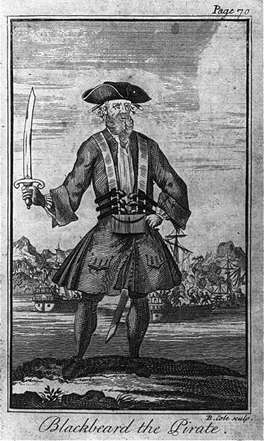Introduction

Copyright law evolved from England's Statute of Anne of 1709 through the current Copyright Act of 1976. Decades after Anne, the US Constitutional copyright power is grounded in promoting "progress of Science and useful Arts." 1
Natural science and social science share principles of collecting accurate information, analyzing it and permitting others to review the accuracy of data collection, validity of analysis and conclusions. Good science may lead to conclusions particular respondents do not like, but the solution is better science, not hiding data, analysis or conclusions. Current press reports raise questions about both accuracy and availability of content for review. This article comments only on the availability and publication of government conducted, contracted or funded information. Premises predating the writing of the Constitution favor public access to information - consistent with the availability of science to enable better science, as opposed to royal suppression long predating the US Constitution.
Exclusive Rights for Limited Times - Then Public Domain
The Constitution provides:
The Congress shall have power * * * to promote the Progress of Science and useful Arts, by securing for limited Times to Authors and Inventors the exclusive Right to their respective Writings and Discoveries.2
In the language of the day the "progress of Science" corresponds to the right granted to authors to their writings, hence the copyright power.
In The Federalist the commentary addressed exclusivity - the exception to the public right to copy: "The utility of this power will scarcely be questioned. The copy right of authors has been solemnly adjudged in Great Britain, to be a right at common law. The right to useful inventions, seems with equal reason to belong to the inventors."
"Limited time" is key. While the Statute of Monopolies of 1623, constrained the sovereign's grant, the Statute of Anne of 1709 enabled authors to make money from their work product by stopping "copying". That exclusivity would end, at which time the writing is available for the public to copy.
The balance and the desirable term has been the subject of much commentary. Competitors are generally privileged to copy one another's products unless there is an unexpired patent.3 Ideas are free for all to use. Copyright only protects the author's original expression in a work and does not protect ideas. 4 "[C]opyright law ... grants the public the right to copy without attribution once a copyright has expired"5
Government Works
This paper will focus on works of authorship - those documents that reflect showing and explaining scientific research, and the analysis and review thereof. A corollary to privately created works becoming public after expiration is that publicly created works are always public - if they are work product of the Federal government.
While having long roots in case law,6 to avoid doubt the Copyright Act of 19767 makes it express:
105. Subject matter of copyright: United States Government works
(a) In General.
Copyright protection under this title is not available for any work of the United States Government, but the United States Government is not precluded from receiving and holding copyrights transferred to it by assignment, bequest, or otherwise. 8
State Governmental Works
Less clear is how to treat works of state governments. Bearing in mind that the Constitution grants power to Congress to enact copyright law, silence by Congress over state government works has required case law to develop. Georgia v. Public.Resource.Org, Inc. 9 balanced state sovereignty and a public interest to be free to copy some categories of state government works, leaving aside other works.
Federal Government Works
Wheaton10 dealt with a right to public access to and use of court opinions written by Federal judges. Common law copyright, Federal copyright deposit and the history of the exclusive right before publication were discussed in detail in Wheaton v. Peters.11 The case involved a "reporter" (Wheaton) of Supreme Court opinions, who published them in book form trying to enforce exclusivity against another publisher. Notable, however was the statement:
"It may be proper to remark that the court are unanimously of opinion, that no reporter bas or can have any copyright in the written opinions delivered by this court; and that the judges thereof cannot confer on any reporter any such right."
Narrowly construed, Wheaton addressed the Court's own opinions. More broadly, it has been interpreted to address works of the Federal government. Within the opinion, it distinguished state common law copyright. State common law copyright was expressly preempted by the 1976 Copyright Act.12
State Government Works After the Foregoing Federal Analysis
Having established that both Federal government works are in the public domain and the differentiation between Federal and State copyright in Wheaton, the use of content created by state government has been a continuing issue, guidelines having been established in Georgia v. Public.Resource.Org, Inc.13 Use of state government works had been analyzed under the "government edicts doctrine." Essentially, public policy requires that in the public interest, the work product of judges and lawmakers are in the public domain. The analysis derives from sovereignty and the right of the public to have free access to the work product of their lawmakers. A less elegant approach looks to whether taxpayers "get what they pay for". Indeed, the government edict doctrine better applies to the public access and sovereignty analysis, while Georgia v. Public.Resource.Org, Inc. provides more weight to, while not specifically adopting, the latter.
Wheaton's rule that Judges do not own copyright in their opinions extended to state Judges14 in however, permitted headnotes and explanatory material, not written by the Judges, to be copyrightable. Extending the logic: "If judges, acting as judges, cannot be "authors" because of their authority to make and interpret the law, it follows that legislators, acting as legislators, cannot be either." The corollary is:
"In the same way that judges cannot be the authors of their headnotes and syllabi, legislators cannot be the authors of (for example) their floor statements, committee reports, and proposed bills. These materials are part of...
